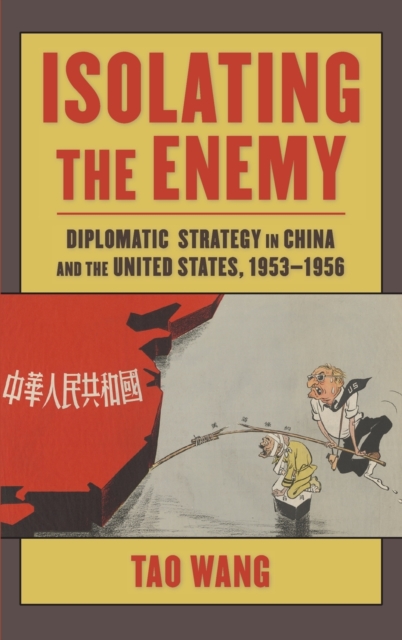
Isolating the Enemy : Diplomatic Strategy in China and the United States, 1953-1956 Hardback
by Tao Wang
Part of the Studies of the Weatherhead East Asian Institute, Columbia University series
Hardback
- Information
Description
In the crucial moment after the Korean War, the United States and the People’s Republic of China circled each other warily.
They shifted between confrontation and conciliation, ratcheting up tension yet also embarking on peace initiatives. Tao Wang offers a new account of Sino–American relations in the mid-1950s that situates the two great powers in their international context.
He reveals how both the United States and China adopted a policy of attempting to isolate their adversary and explores how Chinese and American leaders perceived and reacted to each other’s strategies.
Although the policy of the Eisenhower administration was to contain China, Washington often overestimated Chinese aggressiveness, worrying allies and neutral states.
Sensitive to the differences within the Western camp, Chinese leaders sought to convince American allies to persuade the United States to back down.
Wang analyzes diplomatic maneuvering over a peace settlement in Indochina, an American defense pact with Taiwan, and the anticolonial Bandung Conference, showing how political pressure pushed American leaders to make concessions.
He challenges the portrayal of Communist states as driven by ideology, showing that Chinese leaders adopted a pragmatic policy during these crucial years. Drawing on Chinese, Taiwanese, Russian, Vietnamese, British, and American archival material, including reclassified Chinese Foreign Ministry documents, Isolating the Enemy offers new insight into Chinese diplomacy in the 1950s and U.S. foreign policy under the Eisenhower administration through a nuanced portrayal of Sino–American interactions.
Information
-
Available to Order - This title is available to order, with delivery expected within 2 weeks
- Format:Hardback
- Pages:336 pages, 9 b&w figures
- Publisher:Columbia University Press
- Publication Date:03/08/2021
- Category:
- ISBN:9780231198165
Other Formats
- Paperback / softback from £22.97
- EPUB from £24.49
Information
-
Available to Order - This title is available to order, with delivery expected within 2 weeks
- Format:Hardback
- Pages:336 pages, 9 b&w figures
- Publisher:Columbia University Press
- Publication Date:03/08/2021
- Category:
- ISBN:9780231198165